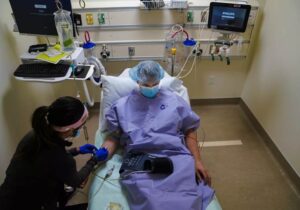I am pleased to share The Baltimore Sun published my Op-Ed on the important issue of Medical Gaslighting (available here as a PDF). Unfortunately, this issue is a common theme in my interviews with people about their healthcare experiences. It’s time to call this practice out, label it for what it is, in the hopes that by creating awareness of the problem, change may occur.
Medical Gaslighting happens when doctors fail to listen or dismiss a patient’s concerns. This practice can happen to anyone but skews more toward women. In her report for the Washington Post, Lindsey Bever cites numerous articles, research studies, and books supporting this phenomenon, noting:
- a failure of physicians to understand pain differentials between men and women
- the dismissal of reproductive health complaints
- racial disparities amplified by gender
- and the unfortunate choice to attach psychological causes to women’s health concerns or to not take women’s pain complaints seriously.
My Op-Ed outlines why medical gaslighting is problematic.
When the validity of a patient’s reality is questioned, this can lead to self-doubt, confusion and a loss in self-esteem. Medical gaslighting has serious consequences: As people struggle to get a diagnosis, physicians aren’t addressing the real problems leading to misdiagnoses, treatment failures and poor medical outcomes.
Bottom line, medical gaslighting is costly. It drains the financial resources of healthcare institutions, adds to insurance fees, and takes a significant toll on patients’ health, sometimes even claiming their lives. It’s time for medical gaslighting to stop. To read more, here’s the link to my Op-Ed on Medical Gaslighting in the Baltimore Sun. To discover ways for you to counter the practice of Medical Gaslighting, read my post titled Gaslighting – Steps to Counter.



